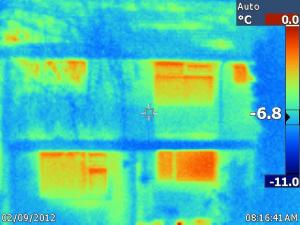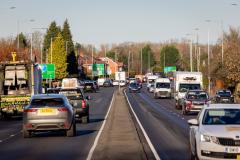
Transition Wilmslow has completed a project to help raise awareness of ways to reduce household energy consumption in the Wilmslow area.
Funded by a £35000 grant from the Department for Energy and Climate Change, the volunteers have surveying how energy use in houses and community halls might be reduced and surveyed the potential for an anaerobic digester to generate heat and electricity from recycling food waste.
Andrew Backhouse, who ran the project, said "It has been a brilliant community venture, with lots of volunteers from all sorts of organisations using the cameras, talking to neighbours, or coming along to meetings.
"7.5 tons of CO2 will be saved this year by Transition Wilmslow volunteers surveying houses and encouraging action to reduce energy use and 160 tons CO2 over the lifespan of the measures adopted if everyone does what they pledged to do."
Andrew added "It is the way the household lives and what else it has done, that causes much of the variations in energy cost, not just the age, number of inhabitants, or type of house. One street in Wilmslow has terraces with some houses costing £1400pa for gas and electricity, and an end of terrace costing £540pa with more rooms and people living in it.
"There are so many simple things we can do, from turning down thermostats, drawing curtains, insulating the lofts, dressing more warmly, fitting draught strips, and shutting doors. Most of them are the things our grandparents would have done automatically.
"The most expensive energy bills of the hundred homes surveyed in the Wilmslow area cost £6000pa for energy (it was not a huge old house either) and the least, around £500pa."
Geoff Sampson, of AMEC, will be talking to Transition Wilmslow about an anaerobic digester for Wilmslow at their meeting on Wednesday 15th May at theBoardroom.
Andrew explained "A fairly small anaerobic digester could be feasible for Wilmslow, which would recycle our food waste, local farm slurry, and make heat for the prison or leisure centre for example, as well as producing electricity for up to 440 homes. An alternative approach might be to support the large one being devised near Goostrey (CRES biogas), which would cost more in carbon for transport, but would make more electricity, seems more likely to have a secured supply of material to digest, and might therefore be more cost effective."
For further information visit the Transition Wilmslow website or email Andrew Backhouse.
Photo by Nicola Terry shows how a house without radiator backing foil loses heat from the wall.









